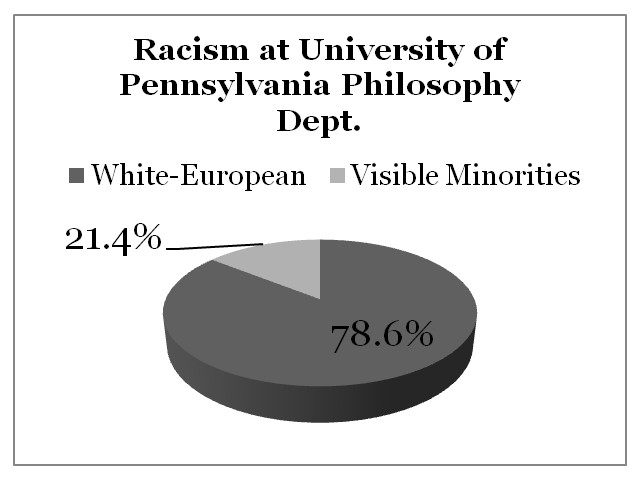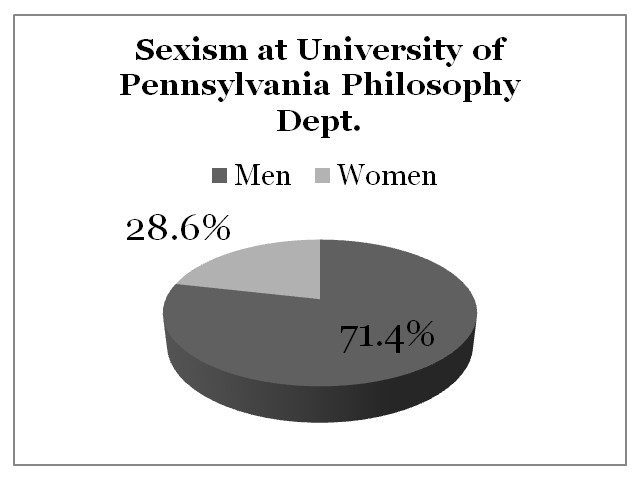Racism and Sexism in
Academic Philosophy -
University of Pennsylvania
Racism in Academic Philosophy in Canada, England, and the USA
Sexism in Academic Philosophy in Canada, England, and USA
By: Shawn Alli
Posted: May 9, 2016

*All individuals and organizations receive 7 full days of pre-publication notice (11 including weekends).
*I ask for a request for comment from the philosophy department instead of the university spokesperson because it's the philosophy department (philosophers) that are racist or sexist.
*I round up to one decimal place for all figures.


In a request for comment I ask them:
1. Do you believe that 3/14 [corrected in online pie charts to 4/14] women in tenure-track positions represents sexism in the University of Pennsylvania philosophy department?
2. Do you believe that 2/14 [corrected in online pie charts to 3/14] visible minorities in tenure-track positions represents racism in the University of Pennsylvania philosophy department?
University of Pennsylvania Philosophy Professor Michael Weisberg is kind enough to respond:
Thank you for inquiring about our department. First, let me correct your figures. We have 4/14 women in tenure track departmental positions, and 5/15 faculty position in the department including our senior lecturer. There are several more women with secondary appointments in philosophy including those in the Law, Medicine, Education, and the Wharton school. A few years ago, 40% of our department faculty were women — two were recruited away and one didn’t receive tenure. It is a high priority for our department to recruit more women to our faculty and to retain the excellent faculty that are currently at Penn.
Second, we have three standing faculty from under represented minorities (not 2). Again, we consider it a high priority to build faculty diversity. As a department, we have spent considerable time both in thinking about best practices for standard hiring, but also how we can systematically identify excellent scholars who come from groups under-represented in philosophy (sadly, many groups fall under that category) and try to recruit them to Penn.
I'll concede that 21.4% tenure-track visible minorities is better than most philosophy departments.
Identifying excellent visible minority scholars isn't difficult. You only need to look at their influence on local, regional, national or global populations. If the writing doesn't have a significant influence on others, it's of no significant value. I'd like my Philosophy Reborn series to be paradigm shifting. But only the people can decide that. Not reviewers or publishers inflating the importance of their authors.






